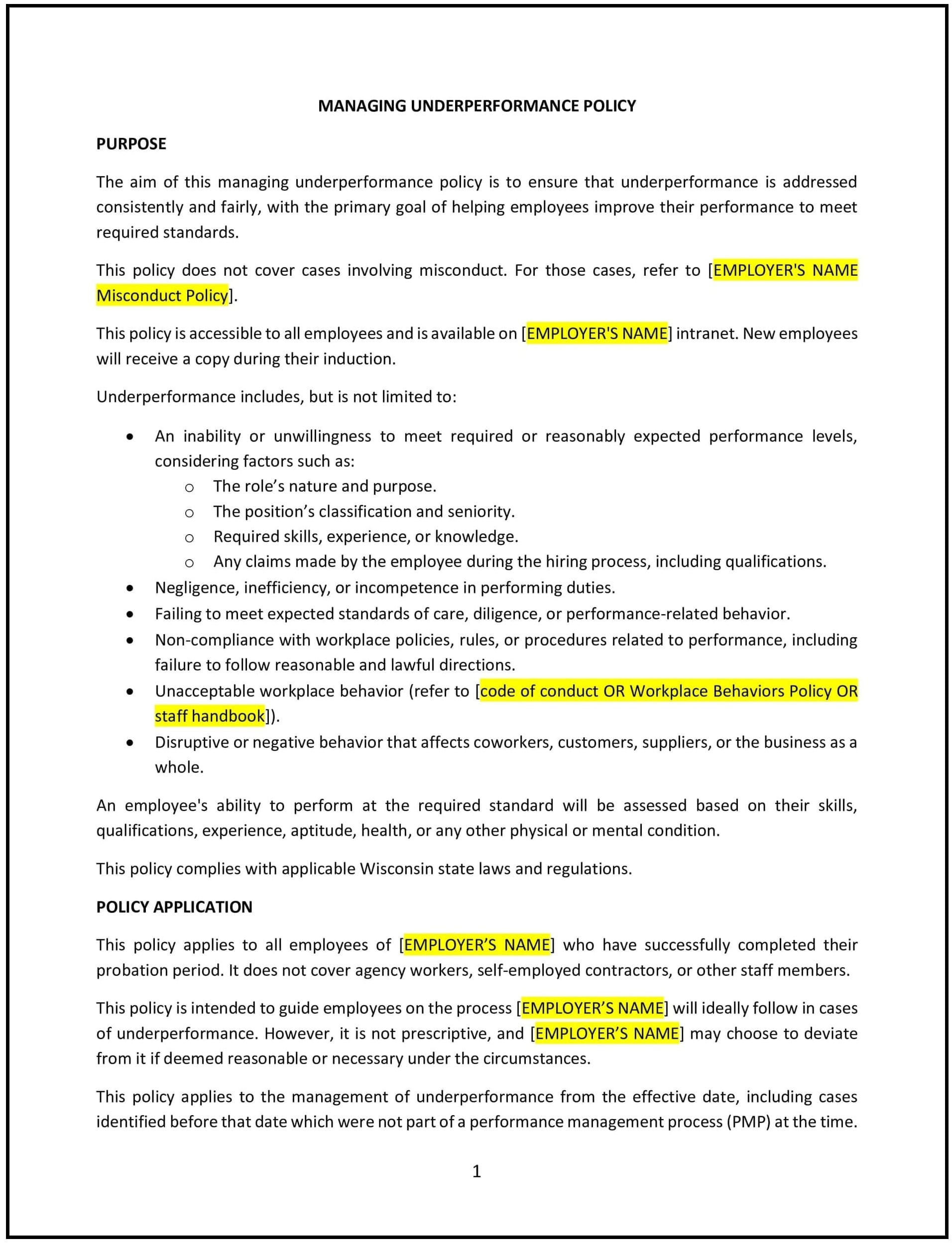Managing underperformance policy (Wisconsin): Free template
Got contracts to review? While you're here for policies, let Cobrief make contract review effortless—start your free review now.

Customize this template for free
Managing underperformance policy (Wisconsin)
A managing underperformance policy helps Wisconsin businesses establish clear procedures for addressing employee performance issues. This policy outlines steps for identifying, addressing, and improving underperformance while improving compliance with Wisconsin labor laws and maintaining a fair and supportive work environment.
By implementing this policy, businesses can promote productivity, support employee development, and reduce the risk of legal challenges related to performance management.
How to use this managing underperformance policy (Wisconsin)
- Define underperformance: Clearly specify what constitutes underperformance, such as not meeting performance goals, poor quality of work, or failing to meet job expectations.
- Outline the performance management process: Provide steps for addressing underperformance, including setting clear performance expectations, providing feedback, and offering support to help employees improve.
- Establish a performance improvement plan (PIP): Detail how employees will be put on a performance improvement plan if underperformance continues, including timelines, goals, and support resources.
- Include regular reviews: Set procedures for reviewing progress on the performance improvement plan and determining whether the employee is meeting expectations.
- Provide support and development: Offer training, mentorship, or other resources to help employees overcome performance challenges and improve.
- Address consequences: Define the actions that may be taken if underperformance persists, such as reassignment, demotion, or termination, in compliance with Wisconsin labor laws.
Benefits of using this managing underperformance policy (Wisconsin)
This policy offers several benefits for Wisconsin businesses:
- Promotes fairness: Ensures consistent handling of underperformance issues, providing employees with clear expectations and opportunities to improve.
- Supports employee development: Encourages employees to improve through feedback, training, and development opportunities.
- Reduces legal risks: Helps protect the business from legal challenges by adhering to a clear, documented process for managing performance issues.
- Improves productivity: Addresses performance issues proactively, fostering a more productive and effective workforce.
- Enhances morale: Demonstrates the company’s commitment to supporting employees and providing them with the tools and resources to succeed.
Tips for using this managing underperformance policy (Wisconsin)
- Communicate the policy clearly: Ensure employees understand the performance expectations, how underperformance will be addressed, and the steps they can take to improve.
- Provide regular feedback: Offer ongoing feedback to employees about their performance, both positive and constructive, to prevent issues from escalating.
- Use a fair and consistent process: Apply the policy equally to all employees to ensure fairness and avoid perceptions of favoritism or bias.
- Offer development opportunities: Provide training, mentorship, or additional resources to help employees meet performance expectations.
- Monitor progress: Regularly review employees on performance improvement plans and adjust support as needed to ensure progress.